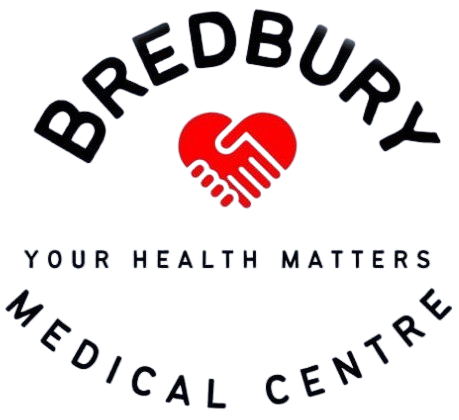We use cookies to help provide you with the best possible online experience.
By using this site, you agree that we may store and access cookies on your device. Cookie policy.
Cookie settings.
Functional Cookies
Functional Cookies are enabled by default at all times so that we can save your preferences for cookie settings and ensure site works and delivers best experience.
3rd Party Cookies
This website uses Google Analytics to collect anonymous information such as the number of visitors to the site, and the most popular pages.
Keeping this cookie enabled helps us to improve our website.
Prescriptions
Please follow the guidelines and choose the right option for you.
Please allow four full working days for prescriptions to be processed and remember to take weekends and bank holidays into account.
We do not accept repeat prescription requests over the phone.
Ordering a Repeat Prescription
When you order a prescription online, you can have it sent electronically to a pharmacy of your choice. This is called a nomination.
The NHS App
Order repeat prescriptions via the NHS App or NHS website, and have them sent to a pharmacy of your choice.
Use Online Services
The easiest way to order your prescription is by using our online services.
Online Form
If you're not registered with our online services, you can use our online form
Order your repeat prescription via our online Repeat Prescription form. No account required.
Your Local Pharmacy
Pharmacy Ordering / Collection Service
Pharmacies offer a prescription collection service from our Practice
Your pharmacy can also order your medication on your behalf. This saves you time and unnecessary visits to the Practice. Please contact the Pharmacy of your choice for more information if you wish to use this service.
About pharmacists
As qualified healthcare professionals, pharmacists can offer advice on minor illnesses such as:
- coughs
- colds
- sore throats
- tummy trouble
- aches and pains
They can also advise on medicine that you can buy without a prescription.
In Person
You can order in person by returning the right-hand half of a previous prescription for the required medications.
Or, you can submit a handwritten request. You may also write out an order for someone else. You must include the patient's name, date of birth and requested medication.
By Post
You can post your prescription slip or written request to us at the Practice.
If you're unable to collect your prescription from the surgery, please include a stamped, addressed envelope for return by post. Please allow at least seven days if requesting your medication by post.
Questions About Your Prescription
If you would like to speak to someone at the GP surgery about your prescription, please contact us.
Medication Reviews
If you have a repeat prescription, we may ask you to come in for a regular review.
We will be in touch when you need to come in for a review.
Prescriptions Charges and Exemptions
Extensive exemption and remission arrangements protect those likely to have difficulty in paying charges (NHS prescription and dental charges, optical and hospital travel costs).
The NHS prescription charge is a flat-rate amount which successive Governments have thought it reasonable to charge for those who can afford to pay for their medicines. Prescription prepayment certificates (PPCs) offer real savings for people who need extensive medication.
When going abroad you can take your NHS medications with you.
Please visit the NHS website for the latest Prescription Charges
These charges apply in England only. In Northern Ireland, Scotland and Wales prescriptions are free of charge.
Further Information
Electronic Prescription Service
The Electronic Prescription Service (EPS) sends electronic prescriptions from GP surgeries to pharmacies. Eventually EPS will remove the need for most paper prescriptions.
Electronic Repeat Dispensing
Learn about the benefits of Electronic Repeat Dispensing and how to set it up.
Antibiotics: When and When Not to Use Them
What Are Antibiotics?
Antibiotics are medicines used to treat infections caused by bacteria. They work by either killing bacteria or stopping their growth. They do not work against viral infections like the common cold, flu, or most sore throats.
When to Use Antibiotics:
- For Bacterial Infections: Antibiotics are effective against infections caused by bacteria, such as pneumonia, strep throat, urinary tract infections (UTIs), and certain skin infections.
- As Prescribed by a Doctor: Only use antibiotics when prescribed by a healthcare professional. They will recommend the right type of antibiotic and dosage based on your condition.
- Complete the Full Course: Always finish the full course of antibiotics, even if you start feeling better. Stopping early can allow bacteria to survive and develop resistance.
When NOT to Use Antibiotics:
- For Viral Infections: Antibiotics do not work against viral infections like colds, flu, most sore throats, or viral bronchitis. These illnesses usually get better on their own.
- For Unnecessary Use: Never take antibiotics for non-bacterial illnesses or without a prescription. Misusing antibiotics can lead to resistance, making infections harder to treat in the future.
- Never Share Antibiotics: Do not share antibiotics with others or use leftover prescriptions. What works for one person’s infection may not be suitable for someone else’s.
Why Responsible Use Matters:
Using antibiotics incorrectly or unnecessarily can lead to antimicrobial resistance (AMR), which occurs when bacteria no longer respond to the medicines that once treated them. This makes infections harder to treat and increases the risk of complications, longer illnesses, and higher medical costs.
By using antibiotics properly, we can help keep them effective for future generations. Always consult with your healthcare provider before taking antibiotics and follow their instructions carefully.
